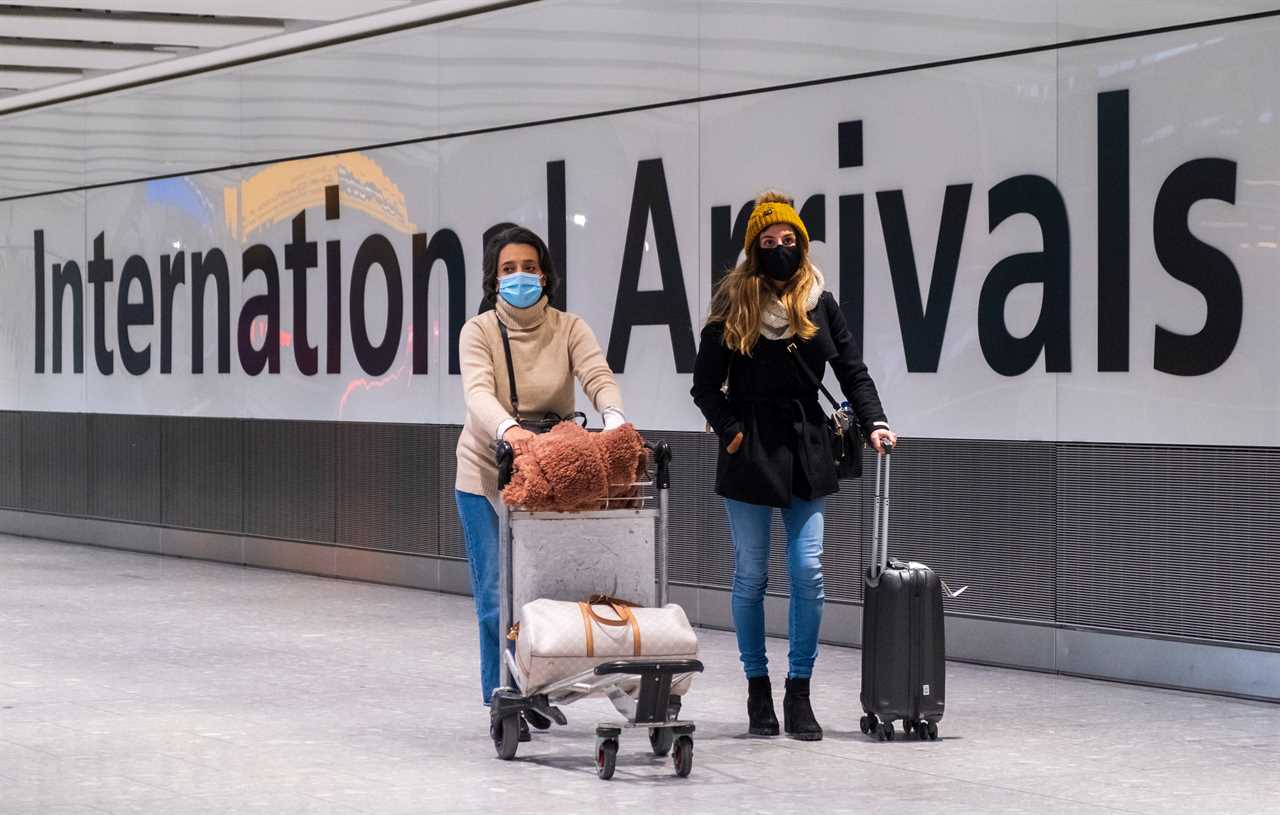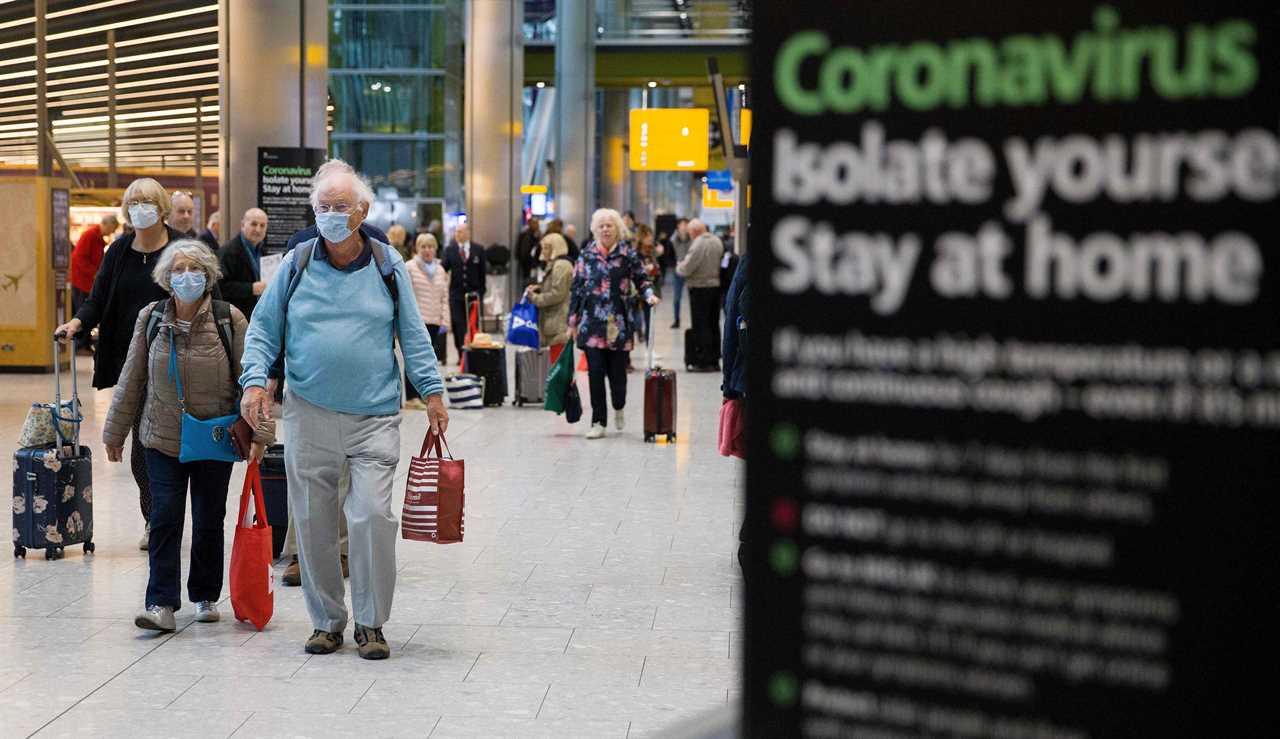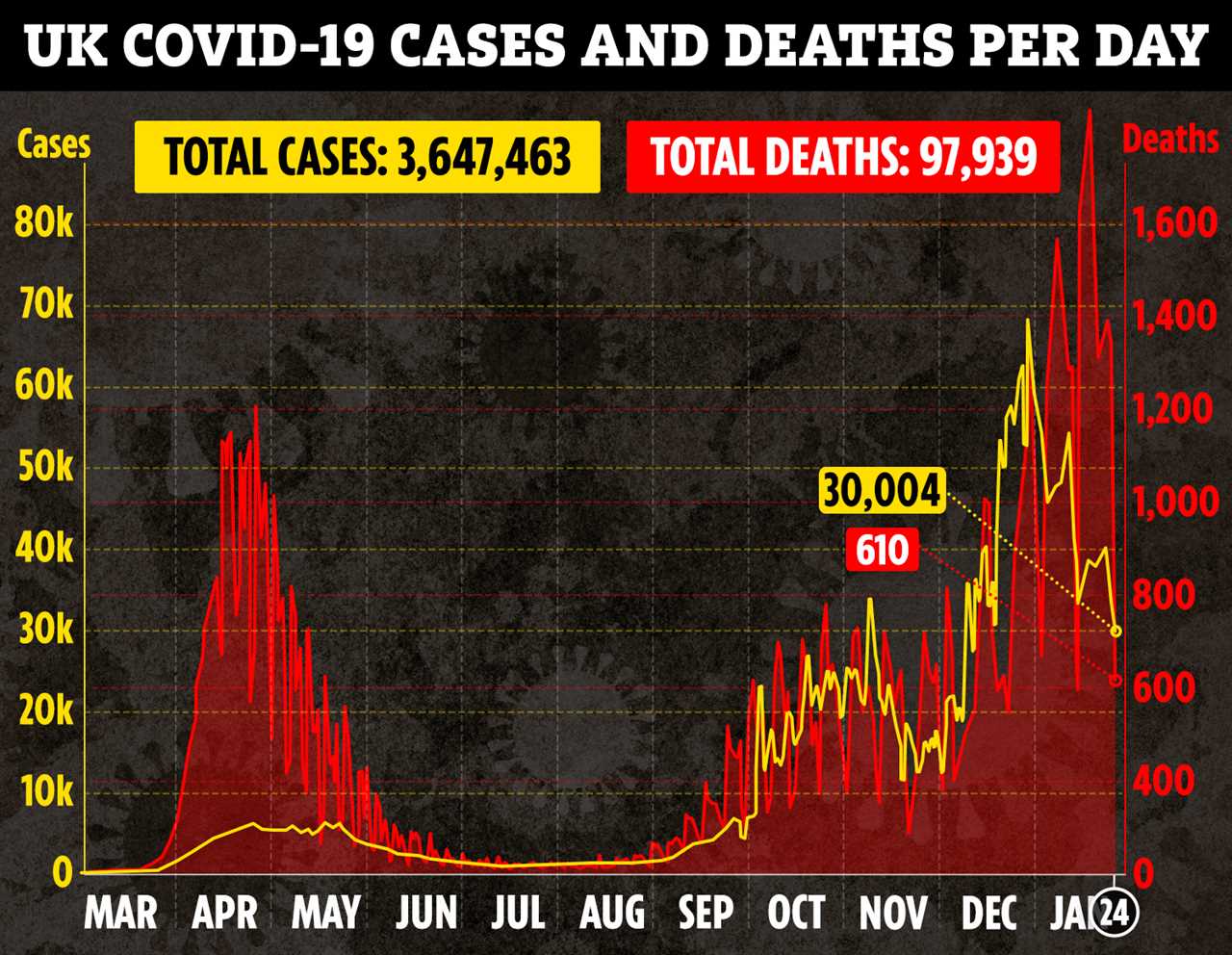ALL UK arrivals – including Brits flying home – face staying in quarantine hotels and paying their way for 10 days as Covid travel restrictions are set to tighten.
Boris Johnson has allegedly backed plans to make all travellers stay in hotels to prevent new coronavirus strains harming Britain’s vaccination programme.

Read our coronavirus live blog for the latest news & updates

A decision to tighten border controls is set to be made by the Prime Minister today at a meeting of the government’s Covid operations committee.
They are expected to agree on a further crackdown – in which all arrivals into UK airports will be taken to designated Covid hotels where they would be expected to remain for 10 days.
The hotels – based on the Australian model – will be introduced at major airports, where arrivals from abroad will be ordered to isolate.
This means that even Brits returning home will have to spend nearly two weeks in the accommodation until producing a negative test.
The new rule will be a hammer blow to the tourist trade – and visitors will also be clobbered with the cost of an airport hotel bill immediately on arrival.
Two senior government sources told The Times that the Prime Minister was becoming “more swayed” to make the extreme decision.
And Rishi Sunak also backs the plan – believing that the economic cost of the hotel plan is outweighed by the risks of the present travel restrictions, it’s understood.
The Chancellor joins Health Secretary Matt Hancock and Home Secretary Priti Patel in the group of Cabinet ministers who want the decision to include arrivals from all countries.
A source said: “The view at both the official and ministerial level is that there is no point doing it in half measures.
“You might as well do the blanket ban.”
But Grant Shapps, Transport Secretary, has argued that the new restrictions should only apply to passengers arriving from countries with known new strains of coronavirus.
COVID HOTELS
Talks are being held with hotel chains, including IHG, which owns Holiday Inn, about taking over premises for the new tougher travel plan.
Officials are confident that they can find enough capacity to accommodate all arrivals – which is currently around 10,000 a day.
Last week, all of Britain’s travel corridors were scrapped following concerns about new coronavirus variants.
Now, arrivals have to produce a negative test taken within the previous 72 hours and enter isolation for up to ten days.
Mr Hancock made the case for a blanket ban yesterday, adding that it was not possible to predict where new mutant strain of the virus might come from.
The Health Secretary told Times Radio: “It is because of the new variants that we’re more worried about international
travel.
“The critical thing is to protect ourselves from a new variant that might not respond as effectively to the vaccine.
“Protecting Britain from that is critical to making sure that we can get this sorted as quickly as possible.”
He also warned Brits yesterday that all 77 cases of the South African coronavirus variant detected in the UK have been linked to travellers.
The potential for tighter travel restrictions comes as the UK nearly hit the target of giving out 500,000 Covid vaccinations A DAY.
Three-quarters of all over-80s have been jabbed, according to the Health Secretary.
On Saturday, 491,970 Brits were given the first dose of the Covid vaccine in a huge boost for the Government’s target of vaccinating 13.5million vulnerable people by mid-February.
The figure marks an increase of 13,722 doses compared with January 22, when 478,248 jabs were given out.
It is also a significant jump on Thursday’s figure of 409,855.
The increase brings the total number of first-dose vaccinations in Britain to 6,353,321 since the beginning of the rollout on December 8.








